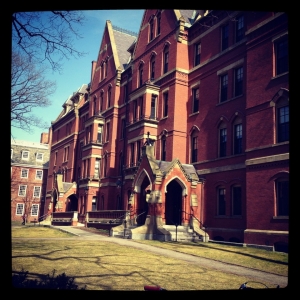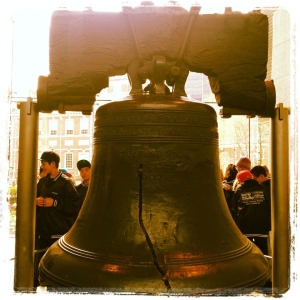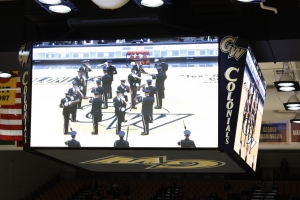By gwblogabroad
There it is, I am leaving. After 9 months in Washington I am going back to France, and more precisely to a socialist France, which makes it all the more fun. It's important because even if I haven't completely understood Americans, living in the United States for one year made me a little bit more France (it is the moment when you grab a tissue). For anyone who considers going abroad at some point I would say: do it. When you grow up in a country you take a lot of things for granted and you will never be able to actually take time to think about the logic of such traditions or ways of life if you don't go live abroad for a while.
Everybody has been asking me for a couple of days : "are you happy to go back?" or "are you sad to go back?". I am neither of those because I knew up front I would be leaving in May. I am just happy to have finished my finals (I don't want to upset those who haven't but it feels great).
Yet, I have one thing left to do: packing, which turned out to be more difficult than what I expected. There are six stages in this process:
1) Optimism: First, you start by thinking you'll bring everything back because your brother who came for spring break took with him a couple of books and a coat.
2) Coming back to reality : You realize it is not going to happen so you start thinking about what you are going to leave. You start by throwing away every useless piece of paper (you did not intend to bring that back anyway but it makes the drawers look emptier which is reassuring).
3) Skepticism: You decide to leave your old clothes: white T-shirts that turned blue, embarrassing underwear, the cap your running instructor gave you (yes, he is back!).
4) Panic: You have everything you did not care about and your suitcases are still almost full (you have not put your books and dirty clothes in there yet). You start panicking, you check how much it would cost to ship them (a lot). You understand that is not going to happen.
5) Frustration: Your criteria to throw away clothes become stricter: shoes that hurt your feet, T-shirt you can only pair with one skirt, green sweaters (yes, at some point you need to be arbitrary).
6) Resignation: You decide to leave your ukulele behind.
Good luck everybody - GW students, exchange students - with finals, packings, going back home.
Peace from France.








